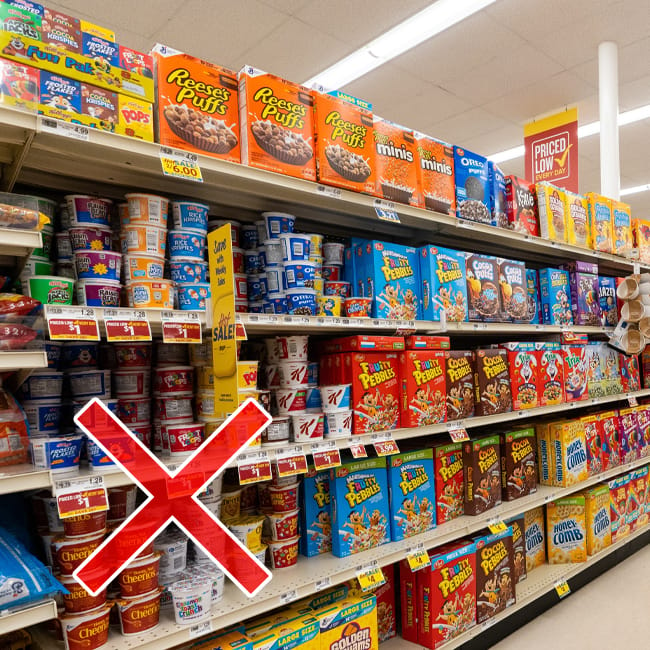While there is a never ending supply of diets and programs on the market that promise weight loss, the true key to achieving long term results is to be in a calorie deficit, or to burn more calories than you bring in. One thing that may hinder your progress is overeating. We’ve all been there—bloated and uncomfortable from eating too much, whether it was because we were served with too big of a portion or because we were mindlessly snacking due to stress. Overeating often leads to a vicious cycle of shame—however, the last thing you should do is punish or restrict yourself after overeating. Heavy restriction with calories can lead to even more overeating later, and besides that, your body still needs nourishment, even if you ate too much earlier in the day.


To keep yourself from overeating, it’s first important to understand what causes us to overeat in the first place. According to Lisa Young, PhD, RDN, a nutritionist in private practice and author of Finally Full, Finally Slim, the main causes for overeating are stress and a lack of knowledge when it comes to portions. “Pay attention to portion sizes—buy small bags of snack foods like chips instead of super size bags, order a small soda instead of a large,” she says, “Also, tune into your hunger levels and your reasons for eating.” Understanding how your body feels when it’s hungry, versus bored, stressed, or tired, is an important tool in nourishing your body properly. But life happens, so when you do find yourself in a situation where you’ve overeaten, what should you do in the moments after? We asked Casey Seamon, RD, LDN, a Noom Coach Manager, what you should do after overeating that will keep you in a positive mindset and help you make better choices in the future.
Reflect
“Building awareness around choices is so important in understanding what happened in the moment,” Seamon says, “Pause for a moment and reflect on what led up to your overeating. What challenges did you experience at the moment? Was it an emotional trigger? Were you aware you were overeating at the time? Taking time to think through the experience helps you better understand and from there you can make an action plan moving forward.”

Honor Your Emotions
“It’s okay to feel whatever you may be feeling. Maybe you’re frustrated with yourself or disappointed, or maybe you’re fully aware of everything that led you to overeating and you aren’t bothered by it,” Seamon says, “Whatever is coming up for you is okay, and taking a minute to check in with those emotions and holding space for them can be pivotal in giving yourself the acceptance and love you need to work through your journey.”
Reframe
“Every action you take can be an opportunity to learn. Overeating doesn’t have to be a failure or a setback! It can be a chance to better understand yourself and do things differently next time,” Seamon says, “If you spend time thinking through the choices you made and what led you to this point you can better know how to be prepared. When we leave the guilt behind we can see this as a positive experience rather than a negative one.”
Forgive Yourself
“Everyone makes choices they aren’t proud of! It doesn’t mean you aren’t dedicated, focused or committed to your goals. It just means you’re human. If you’re being hard on yourself and telling yourself you’re a failure for overeating, then feel free to cut yourself some slack.”
Move On
“Overeating doesn’t have to derail your progress entirely. You can move on from this experience. There will be so many more opportunities in the future to make new and different choices that are aligned with your goals.”


























